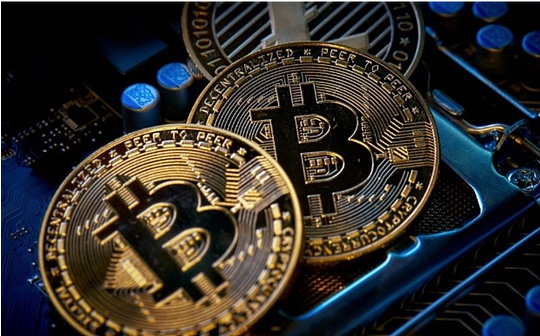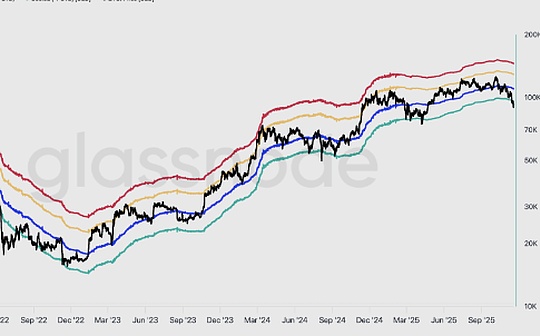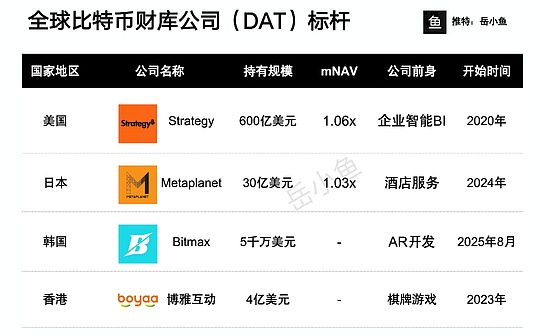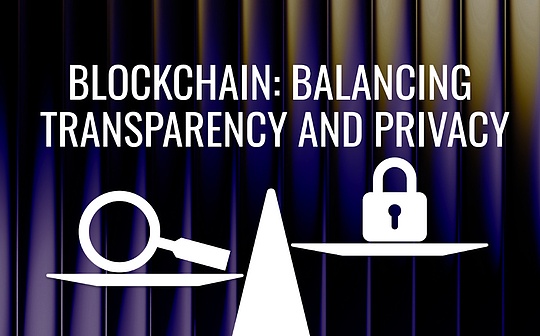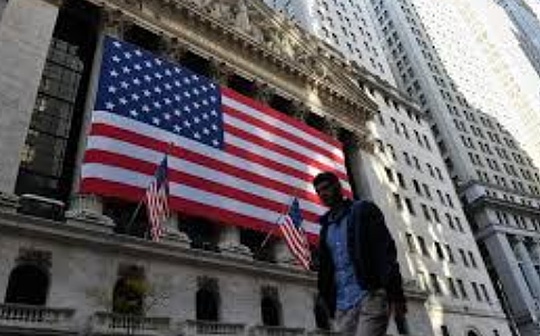
Author: YBB Capital Researcher Ac-Core
Important points
-
In the long run, investing in Bitcoin through ETFs may not be beneficial.Bitcoin ETF trading volume in Hong Kong is much lower than that in the United States.There is no doubt that US capital is gradually controlling the crypto market.Bitcoin ETFs will divide the market into two parts: a “white disk” operating under centralized financial supervision, limited to speculative transactions, and a “black disk” that retains native blockchain activities and trading opportunities but faces regulatory pressure due to “illegality”.”.
-
MicroStrategy achieves efficient arbitrage between stocks, bonds and Bitcoin through its capital structure design.It closely links volatility in stocks and Bitcoin prices to obtain long-term low-risk returns.However, MicroStrategy uses unlimited debt issuances to boost its value, which requires a long-term bull market for Bitcoin to maintain.Therefore, Citron Research’s success rate of shorting MicroStrategy is higher than that of shorting Bitcoin directly, although MicroStrategy bets that the price of Bitcoin will grow slowly and steadily without significant fluctuations.
-
Trump’s crypto-friendly policy will not only maintain the US dollar’s position as a global reserve currency, but will also strengthen the US dollar’s dominance in cryptocurrency pricing.Trump holds the hegemony of the dollar in one hand and Bitcoin in the other – the most powerful weapon against the loss of trust in fiat currency. He strengthens both at the same time and hedges the risks.
1. US capital gradually enters the cryptocurrency market
1.1 Hong Kong and US ETF data
According to Glassnode’s December 3, 2024 data, the holdings of US Bitcoin spot ETFs are only 13,000 BTC away from surpassing that of Nakamoto’s holdings, which are 1.083 million BTC and 1.096 million BTC respectively. US Bitcoin spotThe total net asset value of ETFs reached US$103.91 billion, accounting for 5.49% of the total market value of Bitcoin.Meanwhile, according to Aastocks’ report on December 3, the total trading volume of three bitcoin spot ETFs in Hong Kong in November was about HK$1.2 billion.
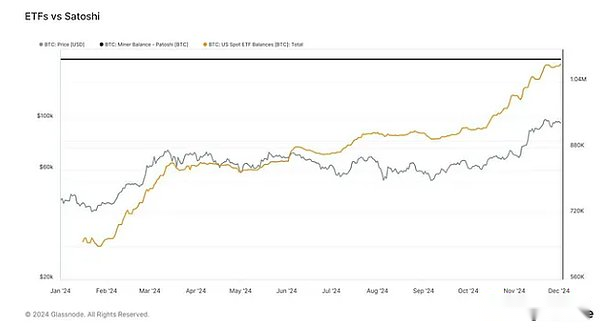
Source: Glassnode
US capital has deeply intervened and influenced the global crypto market and even dominated its development.Bitcoin ETFs have turned Bitcoin from an alternative asset to a mainstream asset, but have also weakened the decentralized nature of Bitcoin.ETFs have promoted the influx of traditional capital, giving Wall Street a firm control over Bitcoin’s pricing power.
1.2 Bitcoin ETF: Black and White
Classifying Bitcoin as a commodity means it must follow the same tax regulations as stocks, bonds and other commodities.However, the impact of Bitcoin ETFs is not exactly the same as other commodity ETFs such as gold, silver and oil.The currently approved or proposed Bitcoin ETFs have different recognitions of Bitcoin:
1. The commodity ETF path involves holding physical assets (e.g., copper warehouses or gold bank vaults), which are processed by authorized institutions, and investors purchase shares (e.g., fund shares) for purchases or redemptions based on funds.
But as far as Bitcoin ETF is concerned, the process of buying and redeeming shares is done through cash settlement, which is a point of contention for people like Cathie Wood who want to do physical settlement.However, this is actually impossible, because the custodians in the United States are centralized financial institutions that handle cash transactions.This makes the early stages of Bitcoin ETFs completely centralized.
2. The final process of Bitcoin ETF is difficult to verify under a centralized regulatory framework.If Bitcoin wants to be recognized as a commodity under a centralized regulatory framework, it must abandon its decentralized characteristics, such as being able to replace fiat currency and being untraceable.Therefore, Bitcoin can only become part of futures, options, ETFs and other financial products if it meets regulatory standards.
The emergence of Bitcoin ETF marks the complete failure of Bitcoin ETF to fight fiat currency. The decentralization of Bitcoin ETF has become meaningless. The front-end completely relies on the legitimacy and custody of platforms such as Coinbase to ensure that the entire buying and selling transaction chain is legal.Transparent and traceable.
Due to ETF, Bitcoin’s “black” part is split from “white” part:
-
White part:Under the centralized regulatory framework, by widely creating financial products, the price volatility of the market is reduced, and with the increase of legal participants, the speculative volatility of Bitcoin commodities will gradually decrease.After Bitcoin became an ETF, the white part of the market supply and demand relationship lost key demand factors (bitcoin’s decentralization and anonymity), leaving only speculative trading financial attributes.At the same time, under the legalized regulatory framework, this also means that more taxes need to be paid, which eliminates the original asset transfer and tax avoidance functions of Bitcoin.Essentially, endorsement shifts from a decentralized chain to a centralized government.
-
Black part:The main reason for the cryptocurrency market’s extremely volatile lies in its opacity and anonymity, which makes it extremely susceptible to manipulation.At the same time, the black market still maintains a high degree of openness, retains the value vitality of blockchain native, and has more transaction opportunities.But with the emergence of some white markets, those who are unwilling to transition to the white market will be forever excluded from the centralized regulatory framework and lose their pricing power, just like paying a fine to the SEC.
2. Trump’s crypto-friendly cabinet nominee
2.1 Cabinet nominee
Trump’s victory in the 2024 U.S. presidential election is a restrictive policy by regulators such as the SEC, the Federal Reserve, and the FDIC during the Biden administration, indicating that the new U.S. administration may take a more radical stance on cryptocurrencies.Here are key cabinet nominations for Trump’s new administration, according to Chaos Labs:

Source: @chaos_labs
-
Howard Lutnick (Correspondent of Commerce and Head of the Transition Team): Cantor Fitzgerald CEO Howard Lutnick is an outspoken supporter of cryptocurrencies.His company is actively exploring the areas of blockchain and digital assets, including strategic investments in Tether.
-
Scott Bessent (nominee for the Finance Minister): Bessent is a senior hedge fund manager who supports cryptocurrencies and believes that cryptocurrencies represent freedom and will last for a long time.He is more supportive of cryptocurrency than former Treasury Secretary nominee Paulson.
-
Tulsi Gabbard (nominee for the Director of National Intelligence): Gabbard advocates privacy and decentralization, supports Bitcoin, and invested in Ethereum and Litecoin in 2017.
-
Robert F. Kennedy Jr., Secretary of Health and Human Services Nominee: Kennedy is a public advocate of Bitcoin, viewing Bitcoin as a tool to combat the depreciation of fiat currencies and potentially becoming cryptoAllies in the currency industry.
-
Pam Bondi (Nominee of Attorney General): Bondi has not issued a clear statement on cryptocurrencies and her policy position remains unclear.
-
Michael Waltz (National Security Adviser nominee): Waltz is a staunch supporter of cryptocurrencies, emphasizing the role of crypto in enhancing economic competitiveness and technological independence.
-
Brendan Carr (FCC Chair Candidate): Carr is known for opposing censorship and supporting technological innovation, and may provide infrastructure support to the crypto industry.
-
Hester Peirce and Mark Uyeda (potential candidate for US SEC president): Peirce is a staunch supporter of cryptocurrencies, and she advocates for clearer regulations.Uyeda criticized the U.S. SEC’s tough stance on cryptocurrencies and called for clear regulatory rules.
2.2 Cryptocurrency-friendly policies can prevent the decline of the US dollar’s global reserve status
Will the White House promotion of Bitcoin shake people’s confidence in the US dollar as a global reserve currency, thereby weakening the US dollar’s status?American scholar Vitaliy Katsenelson believes that given that market sentiment around the dollar has been disturbed, the White House promotion of Bitcoin may indeed weaken people’s confidence in the dollar’s status as a global reserve currency, thereby weakening the dollar’s influence.Regarding the current fiscal challenge, Carson Nelson believes that “it’s not bitcoin that really keeps the United States strong, but controlling debt and deficits.”
Perhaps, Trump’s move could be a means to hedge against the risk of the United States losing its dominance in the dollar.In the context of economic globalization, all countries strive to achieve international circulation, reserves and settlement of their own currencies, but the dilemma on this issue lies in the impossible triangle of monetary sovereignty, free flow of capital and fixed exchange rates.The important value of Bitcoin lies in the fact that in the context of economic globalization, it provides new solutions to national institutional contradictions and economic sanctions.
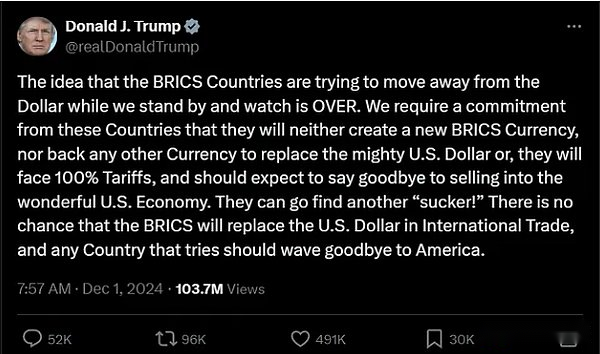
Source: @realDonaldTrump
On December 1, 2024, Trump posted on social media platform X that the era of BRICS countries trying to decouple from the US dollar is over, requiring these countries to promise not to create new BRICS currencies and not support anything that may replace the US dollar.Other currencies, otherwise they will face 100% tariffs and lose their chances of entering the U.S. market.
Trump now seems to hold the hegemony of the US dollar in one hand and Bitcoin in the other – the most powerful tool to fight the decline in trust in the country’s fiat currency.By doing so, he consolidated the dollar’s global settlement rights and pricing power in the cryptocurrency market.
3. The tug-of-war between MicroStrategy and Citron Research
On November 21, during the trading session of the US stock market, Citron Research, a well-known short-selling institution, announced on social media platform X that it plans to short the “Bitcoin heavy-weight stock” MicroStrategy (MSTR).This news caused MicroStrategy’s stock price to fall sharply, falling by more than 21% from its intraday high.
The next day, MicroStrategy executive chairman Michael Sailer responded in an interview with CNBC that the company not only profited from Bitcoin’s volatility, but also used the ATM (At The Market) mechanism to invest in Bitcoin.Therefore, as long as the price of Bitcoin continues to rise, the company can remain profitable.
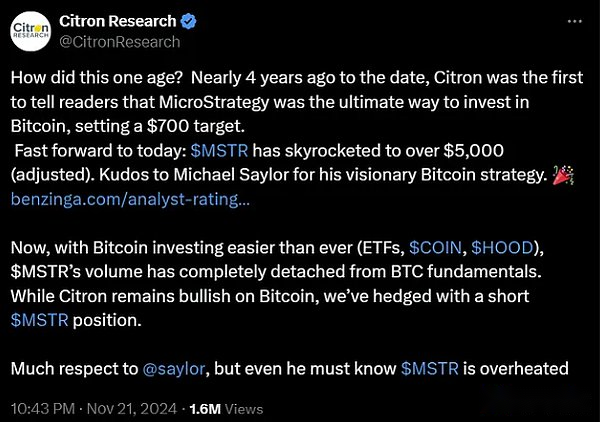
Source: @CitronResearch
To sum up, MicroStrategy’s stock premium, leveraged Bitcoin investment strategy through the ATM mechanism, and short sellers’ views can be summarized as follows:
1. Source of stock premium: A large part of the premium of MSTR comes from the ATM mechanism.Citron Research believes that MSTR’s stock has become an alternative investment for Bitcoin, and its stock price shows an unreasonable premium relative to Bitcoin, which is why they decided to short MSTR.However, Michael Saylor dismissed this view, saying short sellers ignored MSTR’s important profit model.
2. MicroStrategy’s leverage operation: Leverage and Bitcoin Investment: Saylor pointed out that MSTR uses bond issuance financing to leverage its Bitcoin investment and relies on Bitcoin’s volatility to make profits.The company flexibly raises funds through the ATM mechanism to avoid discount issuance of traditional financing methods, while using high trading volume to execute large-scale stock sell-offs, gaining arbitrage opportunities from stock premiums.
3. Advantages of the ATM mechanism: The ATM model allows MSTR to flexibly raise funds and transfer debt volatility, risk and performance to common stocks.Through this operation, companies can gain benefits that far exceed the cost of borrowing and the price of Bitcoin.For example, Saylor notes that by raising funds to invest in Bitcoin at a 6% interest rate, the company will actually get an 80% return if Bitcoin goes up 30%.
4. Specific profit example: By issuing $3 billion convertible bonds, the company expects earnings per share to reach $125 in the next 10 years.If the price of Bitcoin continues to rise, Saylor expects the company to make substantial long-term profits.For example, two weeks ago, MSTR raised $4.6 billion through the ATM mechanism, with a 70% premium in transactions and earned $3 billion worth of Bitcoin in five days, equivalent to about $12.50 per share.Long-term earnings are expected to reach $33.6 billion.
5. Risk of falling Bitcoin price: Saylor believes that buying MSTR stocks means investors accept the risk of falling Bitcoin price.To obtain high returns, corresponding risks must be taken.He expects Bitcoin to rise 29% per year, while MSTR’s share price will rise 60% per year.
6. MSTR’s market performance: Since the beginning of this year, MSTR’s stock price has soared by 516%, far exceeding Bitcoin’s 132% increase in the same period, and even exceeding the 195% increase in artificial intelligence leader Nvidia.Saylor believes MSTR has become one of the fastest growing and most profitable companies in the United States.
Regarding Citron’s short selling behavior, MSTR CEO Michael Saylor said that Citron does not understand where MSTR’s premium relative to Bitcoin comes from, and explained:
“If we fund Bitcoin investment at a 6% interest rate and Bitcoin goes up 30%, then what we actually earn is an 80% Bitcoin spread (a function of stock premium, conversion premium and Bitcoin premium).”
“MicroStrategy has issued $3 billion in convertible bonds, which will generate $125 per share in 10 years based on an 80% Bitcoin spread.”
This means that MicroStrategy can stay profitable as long as the price of Bitcoin continues to rise:
“Two weeks ago, we completed $4.6 billion in ATM transactions, with a 70% premium. This means we made $3 billion worth of Bitcoin in five days, about $12.50 per share. If we predict earnings will reach 10 years$33.6 billion, or about $150 per share.”
To sum up, MicroStrategy’s operating model is to efficiently build capital, arbitrage between stocks, bonds and Bitcoin, and closely link its stock price to Bitcoin’s price fluctuations to ensure long-term low-risk profits.However, the essence of MicroStrategy is that it is able to issue unlimited debt and use unlimited leverage to boost its value.This requires a long-term bull market for Bitcoin to maintain its value.Nevertheless, Citron’s short position on MicroStrategy is much higher than the short selling of Bitcoin, and MicroStrategy still believes that the price of Bitcoin will continue to grow steadily and slowly without significant fluctuations.
4. Conclusion
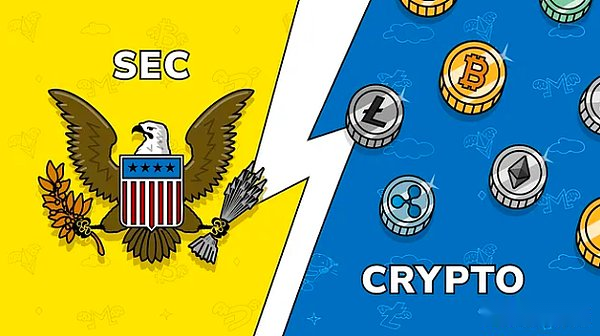
Source: Tradesanta
The United States is constantly strengthening its control over the cryptocurrency industry, and market opportunities are gradually shifting to centralization. The decentralized crypto utopia is slowly compromising, and power is “transferred” to the central government.Any drug has side effects, and the money pouring into the ETF is only temporary relief, just like painkillers cannot cure the underlying disease.
In the long run, Bitcoin’s promotion through ETFs is not necessarily a good thing, and the trading volume of Bitcoin ETFs in Hong Kong is significantly lower than that of the United States.Judging from the flow of funds, US capital is gradually controlling the crypto market.At present, although China is leading in Bitcoin mining, it is still at a disadvantage in terms of capital market and policy orientation.Perhaps in the future, the long-term impact of Bitcoin ETFs will accelerate the normalization of crypto asset trading, but this is both the beginning and the end.

